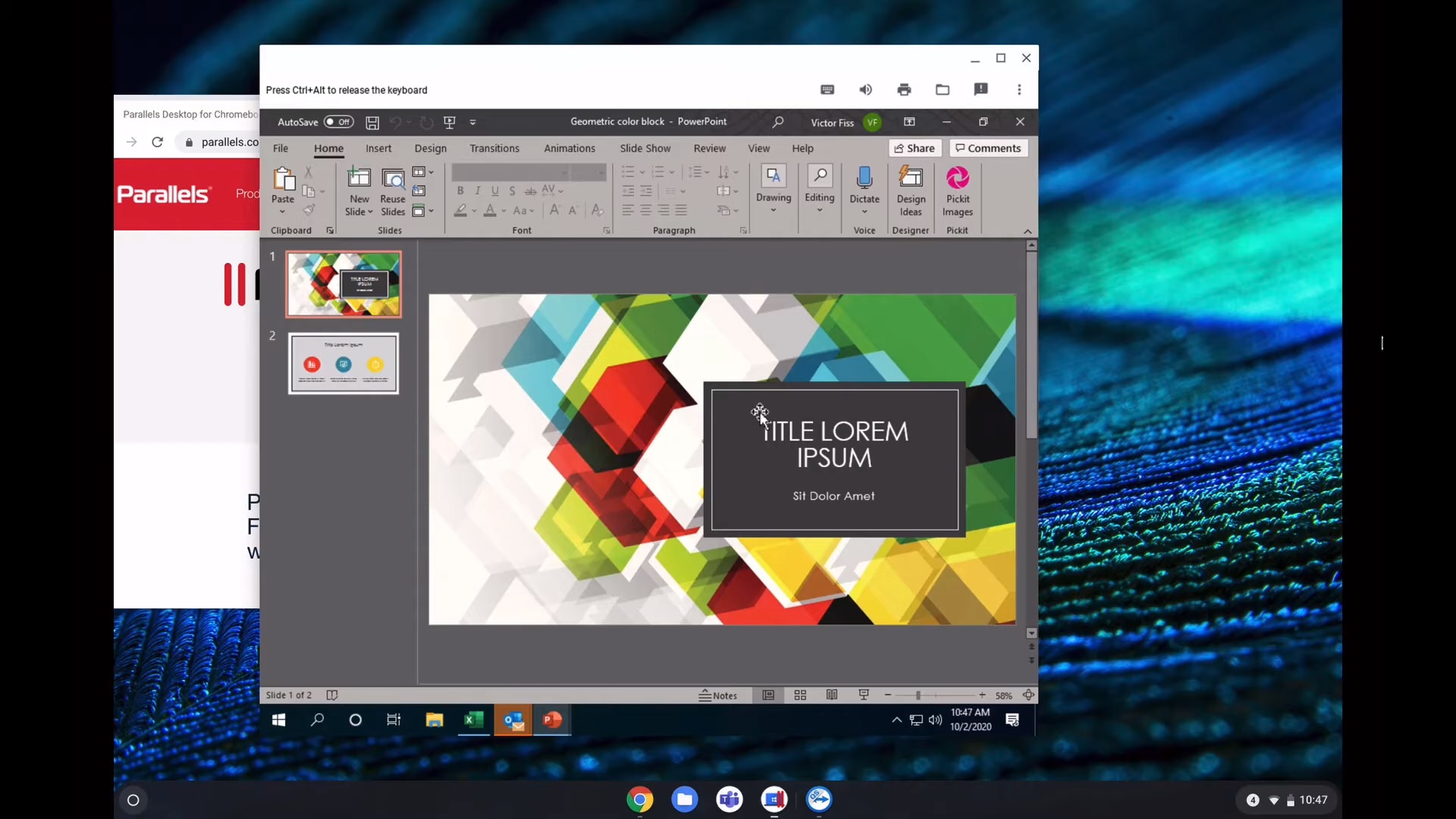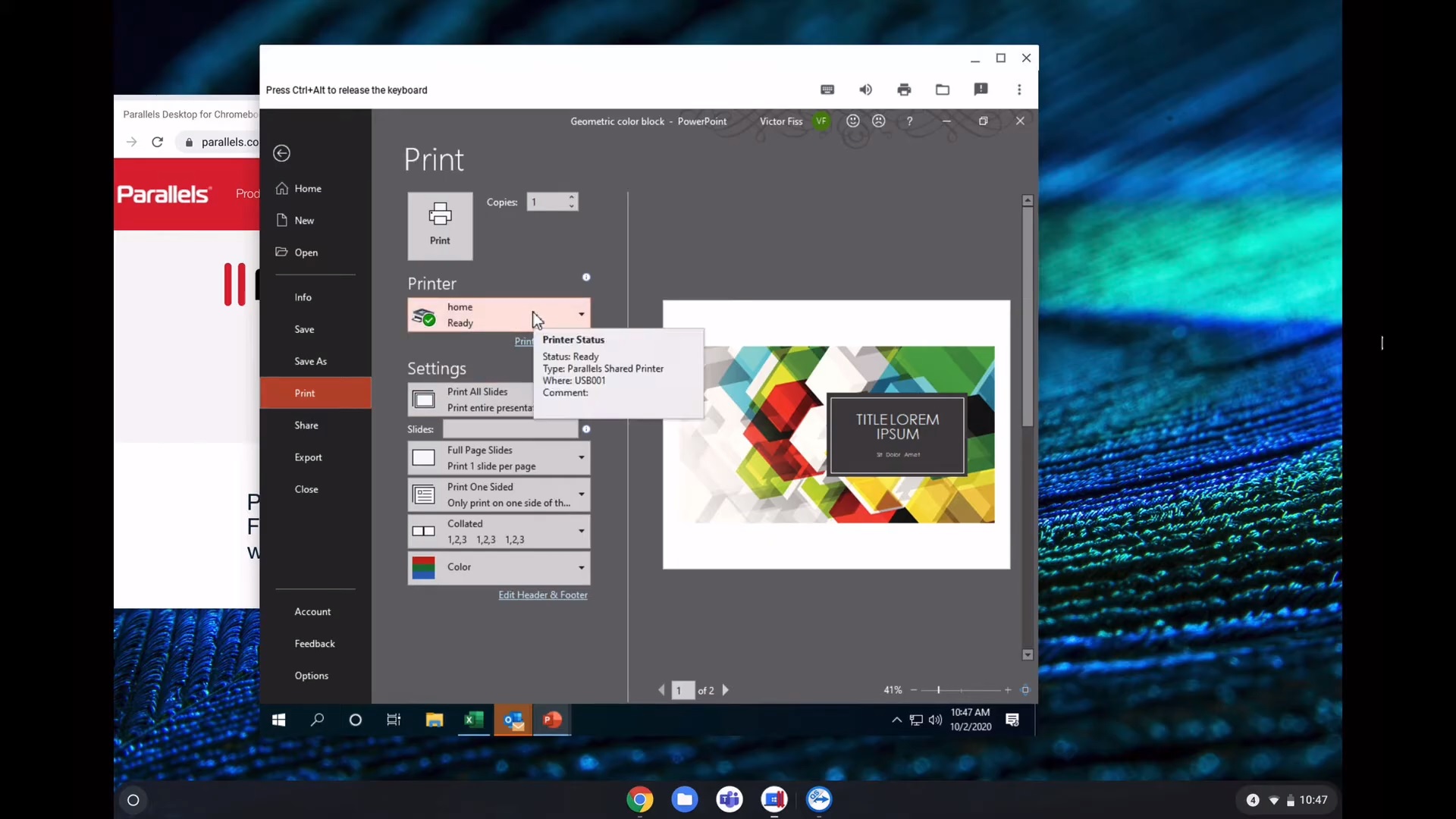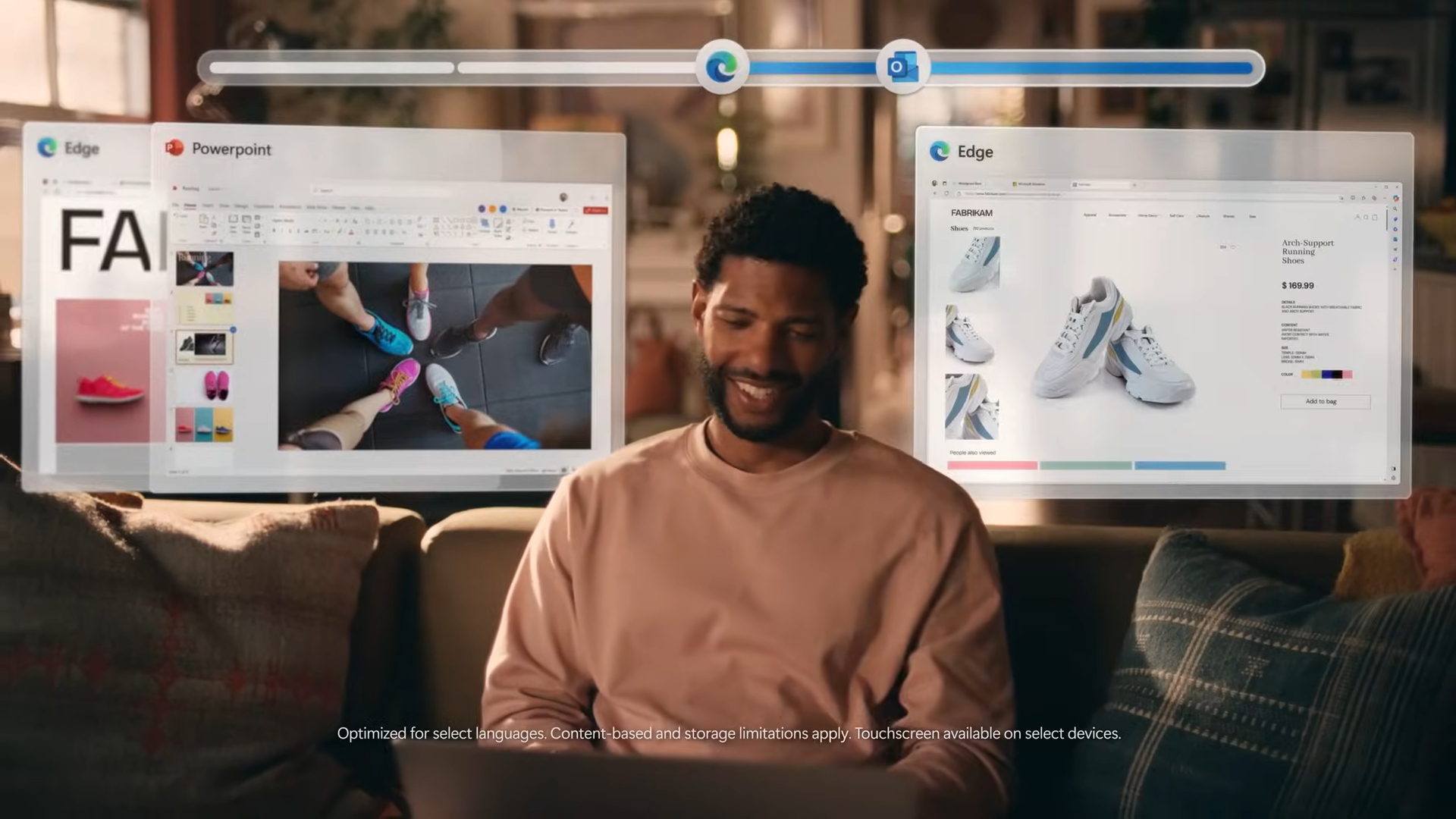Windows 10 apps can now run on Chromebooks — but there's a catch
Chromebook users can now enjoy Windows apps

Chromebooks can now run Windows apps, but there's a catch. This highly coveted feature is for businesses, which means only enterprise users can take advantage of this new leap in Chrome OS technology (via Review Geek).
Google's plans to bring Windows software to Chrome OS was announced earlier this year. The search-engine giant teamed up with Parallels, a leader in virtual-machine emulation, to bring Windows apps to Chromebooks.
Windows 10 apps are now available on Chromebooks
Parallels Desktop for Chromebook Enterprise (PDCE) is the software that will offer Chromebook users access to Windows apps. It is $69.95 per user, according to The Verge. PDCE can launch a full copy of Windows on Chrome OS, allowing Chromebook users to enjoy the best of both worlds: Microsoft's operating system and a cornucopia of Android apps.
However, as I mentioned earlier, PDCE is reserved for enterprise users. Workers who own a Chromebook via their employer will be one of the first groups to try out Parallels Desktop. IT administrators will be able to use Google’s G Suite Admin console to enable the Parallels Desktop on compatible Chrome OS devices. They will also need a Windows 10 license to configure the Chromebooks.
Thanks to PDCE, Chromebook users can now run full versions of popular Windows apps such as Microsoft Word, Excel, PowerPoint and more. Users can also access Windows desktop, documents, downloads and custom folders from Chrome OS files. You don't need to be connected to the internet to run PDCE; Parallels Desktop can operate offline.
Another cool feature PCDE offers is shared clipboard, which means you can seamlessly copy and paste content between the virtual Windows machine and Chrome OS. You can also print from Windows to supported printers.

The system requirements for running PDCE on your Chromebook are Intel Core i5 or i7 processors, 16GB of RAM, 128GB of storage and Chrome OS version 85 or later. Aside from the $69.95 per-user price tag with PDCE, a Chromebook with 16GB of RAM certainly won't come cheap and will creep past the $1,000 mark. Here are the preferred devices for running Parallels Desktop for Chrome Enterprise:
Stay in the know with Laptop Mag
Get our in-depth reviews, helpful tips, great deals, and the biggest news stories delivered to your inbox.
- HP Elite c1030 Chromebook Enterprise
- HP Pro c640 Chromebook Enterprise
- Google Pixelbook
- Google Pixelbook Go
- Acer Chromebook Spin 713
- Acer Chromebook Spin 13
- Dell Latitude 5400 Chromebook Enterprise
- Lenovo Yoga C630 Chromebook
- ASUS Chromebook Flip C436FA
Businesses typically opt for Chromebooks for their budget-friendly pricing, so I'm interested to see how well the PDCE virtual machine fares in the enterprise market.
Most importantly, I'm excited to see how Chromebooks will evolve to incorporate Windows software for everyone — not just enterprise users. Parallels Desktop for Chrome Enterprise is a step in the right direction for Chromebook users who crave the Windows experience.
Kimberly Gedeon, holding a Master's degree in International Journalism, launched her career as a journalist for MadameNoire's business beat in 2013. She loved translating stuffy stories about the economy, personal finance and investing into digestible, easy-to-understand, entertaining stories for young women of color. During her time on the business beat, she discovered her passion for tech as she dove into articles about tech entrepreneurship, the Consumer Electronics Show (CES) and the latest tablets. After eight years of freelancing, dabbling in a myriad of beats, she's finally found a home at Laptop Mag that accepts her as the crypto-addicted, virtual reality-loving, investing-focused, tech-fascinated nerd she is. Woot!

